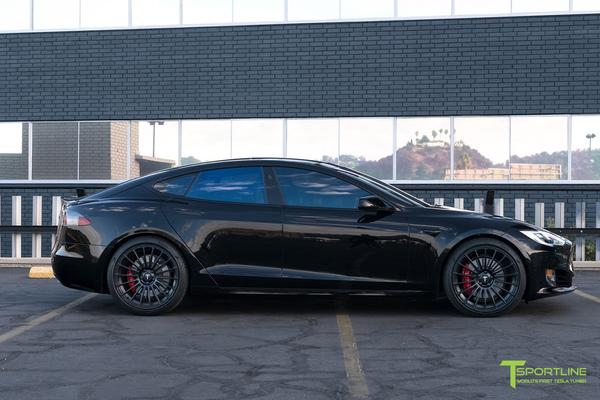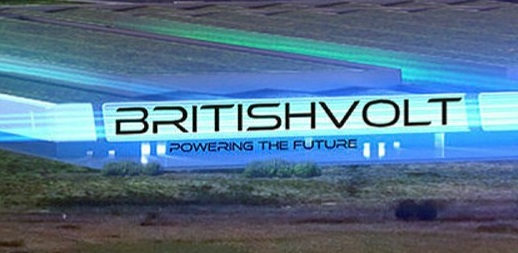Now Reading: Will Electric Cars Ultimately Phase Out Conventional Cars?
-
01
Will Electric Cars Ultimately Phase Out Conventional Cars?
Will Electric Cars Ultimately Phase Out Conventional Cars?

Electric cars are no longer a new phenomenon, but the question as to whether they will survive and completely replace conventional cars is not a straightforward yes or no question. There are many factors that will differentiate whether electric cars will replace conventional cars at all, especially in the many different regions of the world.
It is easy to see the number of electric cars on our street and the meteoric rise of companies such as Tesla. Electric cars have many benefits and nearly all of the world’s largest car manufacturers are focusing the majority of their effort on electric cars.
There is no doubt that the majority of passenger vehicles in developed countries around the world are on track to be electric in the near future. Below I will outline the many different reasons and factors that may determine the answer to the question “Will Electric Cars Ultimately Phase Out Conventional Cars”.
Charging
The biggest difference between electric cars and conventional internal combustion engine cars, is what powers them. The biggest hurdle for consumers to come to terms with is the fact that you need to charge your car, which currently takes far longer than it takes to fill it with gas. This means that should you forget to charge your car overnight, you may wake up with a car that isn’t charged sufficiently for your daily commute.
This is inconvenient and could leave you without a means of transport while you wait for it to charge. However people’s main concern is the potential of running out of charge in the middle of nowhere before being able to reach a charging point. This is one of the electric cars’ biggest hurdles to overcome. Fortunately, the network of chargers is growing daily and very soon, it will be as easy to find a charging point as it is to find a gas station.
This is only going to help electric cars grow in popularity, along with the advancements in charging speed as well as battery longevity and range. Battery technology is progressing at an exponential rate and car manufacturers soon predict a battery that is capable of 1000 miles of range.
Advancements in technology mean electric cars are charging faster than ever and constantly improving, and when this is added to a battery that can travel as far as a tank of gas, there will be few reasons to prefer a gas-powered vehicle over an electric vehicle. This is on top of the fact that fully charging a vehicle costs only a few dollars, whilst a full tank can cost up to $100.
Environment
Another big factor when predicting whether electric cars will ultimately phase out conventional cars, is the environmental impact of running a gas powered vehicle and an electric powered vehicle.
Oil and gas is a finite resource and is currently predicted to run out in the year 2060. There is a huge push currently to find other means of power and this may push this date back further. However, this date will come and when there is no more gas, other power sources will be relied on to power transportation around the globe.
Electric cars seem to provide the answer to this problem, however electricity is not the only possibility. There are hydrogen powered cars already available, and the possibility of solar powered cars. The biggest issue is the environmental impact in the production of the batteries used in electric cars.
It is currently more efficient to keep an old gas powered vehicle running than it is to manufacture a new electric vehicle. I believe however that as technology and batteries improve, this will become a more efficient process. Battery plants are being built all over the globe and once completed, electric cars will be easier, cheaper and more environmentally friendly to produce.
There is no doubt that the still developing countries around the world will move slower to accept electric cars, as they are unable to fund and implement the large changes in infrastructure to facilitate electric cars into society. Once the technology becomes more available and cheaper, these countries will move last but I predict will move the fastest.
Price
Electric powered cars have only been around for a decade or so. Because of this, we are just getting started on the mass production of electric cars for the average consumer. Electric cars up until recently have been extremely expensive compared to the comparable gas powered alternative. The economy of scale dictates that only until the production of electric cars increases, will we start to see the price decrease.
Most major manufacturers have released at least 1 electric vehicle onto their showroom floors, and some car companies like Volvo have pledged to sell only electric cars by 2030. Governments around the world have been offering free grants to consumers towards the purchase of an electric car. This clearly shows the direction of travel for what the future holds in terms of what average people will be driving.
With electric cars becoming more and more affordable, it is no wonder that the year on year increase for electric cars is growing at nearly 50% a year. Volkswagen, one of the world’s largest auto manufacturers, reported they sold 3 times as many electric cars in 2021 compared to 2020.
Reliability
When it comes to reliability, electric cars have many fewer moving parts than conventional cars. This should mean that they are less likely to break. As most electric cars are still very new, there hasn’t been enough time to tell how reliable electric cars really are. However we have seen that when they go wrong, it is an electrical issue rather than a mechanical fault.
These issues are much harder to rectify and usually can only be fixed by the main dealer. This also makes it much more expensive to fix as you won’t be able to take it down to your local shop. Batteries currently may need to be replaced as they will not last as long as the vehicle itself, and the battery is the most expensive part of the car, costing thousands of dollars for a new one.
Tesla recently announced that they hope to make a million mile battery capable of driving a million miles. This will no doubt help push people towards the purchase of an electric car when it comes time to replace their old vehicle.
In conclusion
With the amount of effort and energy being put into electric cars, it looks like it is bound to be the future of transportation. The alternatives just don’t have the same growing acceptance amongst consumers. All of the biggest hurdles for electric cars to become mainstream have all pretty much been overcome and it is only a matter of time until the large majority of cars on the roads are electric.
Electric cars will provide the most modern, efficient, quiet, and environmentally friendly way for people to travel. The tiny costs of charging versus a full tank of gas are sure to help persuade people too.
To learn more about the trends in the auto industry, check out We Try Tires.
Stay Informed With the Latest & Most Important News
Previous Post
Next Post
-
 01Polestar Boss Says It’s Time To Outrun BMW M And Mercedes-AMG
01Polestar Boss Says It’s Time To Outrun BMW M And Mercedes-AMG -
 02Spy Shots: 2027 Mitsubishi Pajero Spotted in Testing Ahead of Possible U.S. Return
02Spy Shots: 2027 Mitsubishi Pajero Spotted in Testing Ahead of Possible U.S. Return -
 032026 Toyota Hilux EV: A Powerful Truck with Silent Torque
032026 Toyota Hilux EV: A Powerful Truck with Silent Torque -
![2027 Mercedes-Benz S-Class Debuts with V8 Engine [Photo Gallery]](https://speedlux.com/wp-content/uploads/2026/01/2027-Mercedes-Benz-S-Class-33-155x125.jpg) 042027 Mercedes-Benz S-Class Debuts with V8 Engine [Photo Gallery]
042027 Mercedes-Benz S-Class Debuts with V8 Engine [Photo Gallery] -
 052026 Corvette ZR1 Production Surges Past Expectations as Output Clears 1,000 Units
052026 Corvette ZR1 Production Surges Past Expectations as Output Clears 1,000 Units -
 06Spy Photos: VW ID. Polo GTI Goes Electric with 223 HP and 280 Miles of Range
06Spy Photos: VW ID. Polo GTI Goes Electric with 223 HP and 280 Miles of Range -
 07Hyundai Palisade’s Breakout Year Shows How Quickly the Market Can Turn
07Hyundai Palisade’s Breakout Year Shows How Quickly the Market Can Turn



![2027 Mercedes-Benz S-Class Debuts with V8 Engine [Photo Gallery]](https://speedlux.com/wp-content/uploads/2026/01/2027-Mercedes-Benz-S-Class-33-700x394.jpg)











































